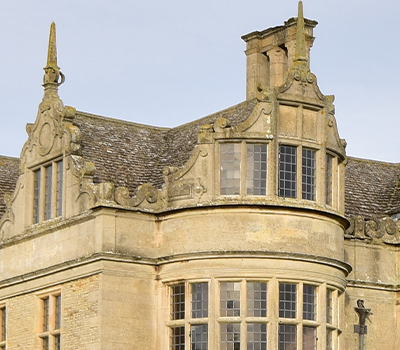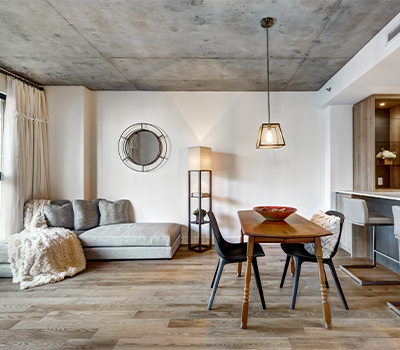What is Homeowners Insurance and What Does It Cover?
2 September 2025
Buying a home is an exciting milestone, but with it comes a host of new responsibilities — and risks. One of the most important safeguards you’ll need is homeowners insurance. Whether you’re purchasing your first home or simply want to understand your policy better, this comprehensive guide will walk you through everything you need to know about how home insurance works in the UK and how to choose the right cover.
What is Homeowner’s Insurance?
Homeowner’s insurance is a type of property insurance that provides financial protection against damage to your home or belongings. It also protects you against liability for accidents that may occur on your property. While the exact terms and coverage vary, most homeowners’ insurance policies include protection for:
- The Structure of Your Home: Damage caused by fire, storm, vandalism, or other covered events.
- Personal Property: Loss or damage to items like furniture, electronics, and clothing due to covered events (e.g. theft or fire).
- Liability Coverage: If someone is injured on your property, homeowners’ insurance helps pay for medical costs or legal fees in case you’re sued.
- Additional Living Expenses: If your home becomes uninhabitable due to a covered event (like a fire), this coverage helps pay for temporary housing and living costs.
In essence, homeowner’s insurance acts as a safety net that can help you recover financially if the unexpected happens.
What Type of Property Do You Want to Cover?
Most homeowner’s insurance policies will cover you if you own a property of standard construction, but if your home is listed or has a thatched roof, you may need more specialist home insurance cover. Homeowner’s insurance coverage can be for:
1. Rented Accommodation
If you are a tenant in a house of flat, it is uncommon to have buildings insurance. That is your landlord’s responsibility to arrange, as they will need to sort out any repairs to the structure of the building. You will however be encouraged to arrange tenants contents insurance for the property. Accidents happen and it is useful to have protection if an expensive laptop gets damaged, or you accidently crack an oven hob.
2. Your Own Property
If your home is mortgaged, it is common practice to have buildings insurance in place as a condition, as it acts as protection for both the lender and yourself.
As a homeowner, it is advisable to take out buildings insurance. If something damages the building or someone breaks in, you’ll most likely face substantial repairs.
Contents insurance is a way of protecting your possessions if something unforeseen happens. It is useful to list your valuables and calculate how much it would cost to buy as new. This does add up and it is important to make sure you are not underinsured when it comes to making a claim.
3. Non-Standard Properties
An example of a non-standard property is a thatched house, a house with a flat roof and a building that is listed made from cob, clunch, concrete or timber frames. Non-standard construction refers to buildings that are not made of brick or stone. If you own a property like this, you may need a specialised insurance policy to cover it.
4. Large or Expensive Homes
If your home is worth a substantial amount of money (or costs over £2 million to rebuild) or has many bedrooms (has more that 6 bedrooms), a standard home insurance policy may not be suitable. You may need to look at Private Client home insurance which concentrates on specialist buildings cover and higher levels of contents cover.
5. Holiday Homes
Most standard home insurance policies do not cover holiday homes. This is often due to the property being unoccupied for more than 30 consecutive days or let to the public. Speak with an experienced broker like Anthony Wakefield & Company to arrange your UK holiday home insurance.
Common types of Homeowners Insurance Policies



There are different types of homeowners insurance policies, each providing varying levels of coverage. The most common are:
1. Buildings Insurance
This covers the structure of your home (e.g. walls, roof, floors, windows) against risks like fire, storms, floods, vandalism, and subsidence. Mortgage lenders typically require it before they approve a loan, since it protects the property itself.
2. Contents Insurance
This protects your personal belongings, such as furniture, electronics, mobile phones, clothing, and jewellery, against damage or theft. Anyone with valuable items in their home should consider this. It’s not a requirement for a mortgage, but it provides peace of mind.
3. Combined Buildings and Contents Insurance
This is a bundle that combines both buildings and contents insurance into one policy, often at a discounted rate. It is ideal for homeowners who want comprehensive coverage for both the property structure and their belongings.
4. Accidental Damage Insurance
This covers accidental damage to your home or belongings. For example, if you spill red wine on your carpet or accidentally break a window. If you’re prone to mishaps, it’s a useful add-on to either buildings or contents policies.
5. Landlord Insurance
If you rent out a property, this policy is specifically for landlords. It typically covers both the building and the landlord’s contents, as well as protection against tenant-related issues (e.g. damage caused by tenants). Rent guarantee is available as a separate product if the tenant fails to pay their rent.
6. Home Emergency Insurance
This provides coverage for emergencies like burst pipes, boiler breakdowns, or electrical faults. Often, it will cover the costs of a call-out and necessary repairs.
7. Legal Expenses Insurance
This covers legal costs if you need to take legal action, or defend yourself against legal action, for issues like disputes with contractors or issues with tenants (in the case of landlords).
How Much Does Homeowners Insurance cost?
The cost of homeowners insurance varies greatly depending on several factors:
- Location: Homes in areas that are high risk (such as subsidence, floods, or theft) will generally have higher premiums.
- Coverage Amount: The more coverage you need, the higher your premium will be.
- Deductible (Excess): Higher deductibles typically lead to lower premiums, but you’ll pay more out-of-pocket in the event of a claim.
- Home’s Value and Age: Older homes or homes with period features may cost more to insure because they’re more expensive to repair or replace.
- Claims History: If you’ve made frequent claims in the past, your premiums might be higher.
How to Choose the Right Homeowners Insurance Policy
Choosing the right homeowners insurance policy can feel overwhelming, but here are some tips to help:
- Assess Your Needs: Consider the value of your home, personal belongings, and your risk exposure. Make sure your policy covers the full replacement cost of your contents and rebuild value of your home.
- Compare Quotes: Shop around and get quotes from different insurers to find the best price and coverage.
- Check the Exclusions: Make sure you understand what’s not covered under your policy. Common exclusions include war risks, cyber risks, and general wear and tear.
- Read Reviews: Look at customer reviews for insurers, especially regarding how they handle claims and customer service.
Final Thoughts
Homeowner’s insurance is not just a legal or financial requirement; it’s a critical part of protecting your home, your belongings, and your financial future. While it can feel complicated, understanding the different types of coverage and what’s right for your situation will give you peace of mind and ensure that you’re protected when the unexpected arises.
By comparing policies, understanding the fine print, and making an informed decision, you can secure the right coverage that suits your needs and gives you suitable protection. Whether you’re a first-time homeowner or an experienced one, taking the time to choose wisely can save you from a lot of stress in the long run.
Do you have any specific questions about your homeowner’s insurance policy? Let us know by emailing info@anthonywakefield.com or by calling 01306 740 555 — we’re here to help!
